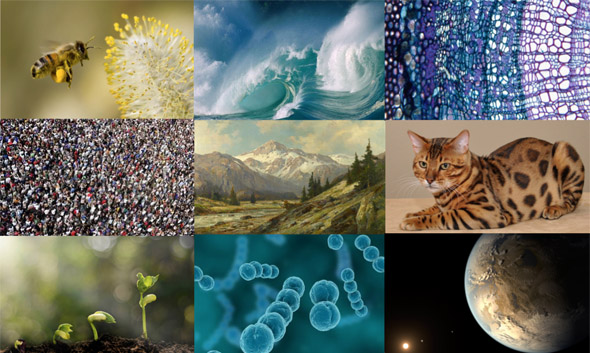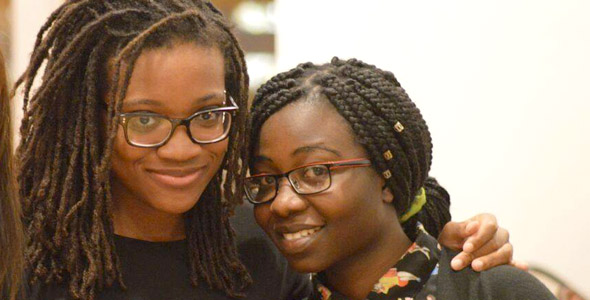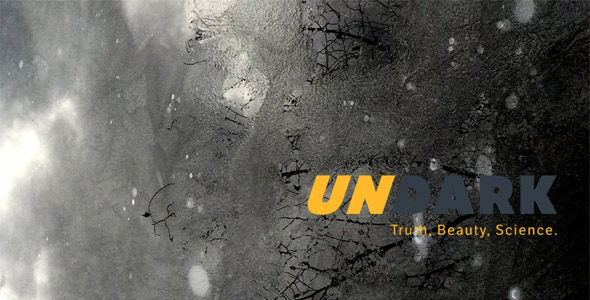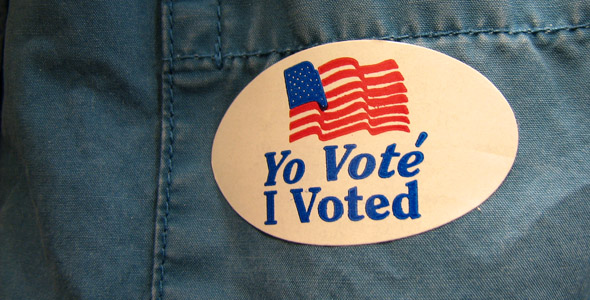Said and Done
November 2016 Edition
Published by the Office of the Dean
MIT School of Humanities, Arts, and Social Sciences

QUOTABLE
“MIT is very proud to celebrate Bengt Holmström’s Nobel prize for economics. His foundational research in contract theory, which has provided practical tools for many areas of modern society, represents the Institute's profound commitment to basic research that can generate new understandings of the human complexities — the political, cultural, and economic realities that shape our existence."
— Melissa Nobles, Kenan Sahin Dean, MIT School of Humanities, Arts, and Social Sciences
HONORS AND AWARDS
ECONOMICS
Bengt Holmström awarded the 2016 Nobel Prize for Economics
Holmström, the Paul A. Samuelson Professor of Economics, is a co-winner of the 2016 Sveriges Riksbank Prize in Economic Sciences in Memory of Alfred Nobel. He shares the prize with economist Oliver Hart, of Harvard University. A member of the SHASS Department of Economics, Holmström also has a joint appointment in the Sloan School. "Bengt has been a much-admired citizen of MIT since 1994," said Dean Nobles, "and on behalf of the entire community, I want to wish him — and Oliver Hart — our warmest congratulations."
Story at MIT News | Holmström's Nobel win delights MIT colleagues | Selected Media Coverage
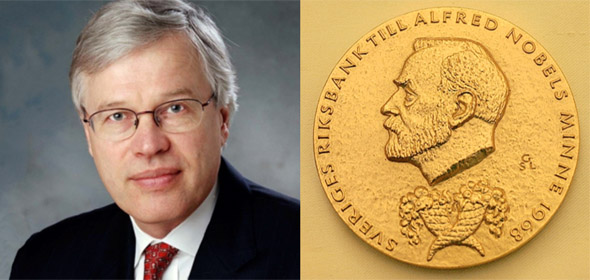
“This award is a testament to the influence of Bengt's work on contracts, incentive theory, and the internal organization of the firm, which has fundamentally reshaped not just the way we think about these topics but the entire field of economics.”
— Daron Acemoglu, Elizabeth and James Killian Professor of Economics, MIT Department of Economics
GLOBAL STUDIES AND LANGUAGES
Bruno Perreau receives France's highest honor for academics
Perreau, the Cynthia L. Reed Professor of French Studies, has been appointed to the Order of the French Academic Palms in recognition of his exemplary academic contributions. “Being named a chevalier in l'Ordre des Palmes Académiques came as a surprise," Perreau said. "I feel very honored by such a distinction, which recognizes my effort to build a bridge between France and the U.S.”
Story by SHASS Communications
POLITICAL SCIENCE
Suzanne Berger receives the Powell Mentoring Award
The honor, presented by the Comparative Politics Section of the American Political Science Association, is awarded on a bi-annual basis to a political scientist who has demonstrated an outstanding commitment to mentoring graduate students in comparative politics.
American Political Science Association website
Nine MIT SHASS faculty members awarded named professorships
MIT's School of Humanities, Arts, and Social Sciences is pleased to announce that nine members of its faculty have been awarded named professorships. These honored positions afford faculty members additional support to pursue their research and develop their careers. “These outstanding faculty members have each made major contributions to the School, the Institute, and their fields,” said Dean Melissa Nobles.
Meet the Professors | Brief Bios



1st row: Sana Aiyar, Class of 1948 Career Development Professor; Catherine Clark; Class of 1947 Career Development Professor; Sasha Costanza-Chock, Mitsui Career Development Professor
2nd row: Amy Finkelstein, John and Jennie S. MacDonald Professor; Deborah Fitzgerald; Leverett Howell Cutten ’07 and William King Cutten ’39 Professor; Daniel Hidalgo, Green Career Development Professor
3rd row: Justin Khoo, Class of 1948 Career Development Professor; Bradford Skow, Laurance S. Rockefeller Professor in Philosophy; Craig Wilder, Barton L. Weller Professor
RESEARCH
LINGUISTICS
Sound system | Norvin Richards
In his new book, Contiguity Theory, Richards explores how our voices shape the rules of grammar, that is, how the sounds of languages have hugely influenced their syntax. Richards believes that phonology — the study of sound in language — must become more signifIcantly integrated with syntax, to better grasp why languages each have their specific rules. When studying syntax, Richards says, “We’ve been missing the deepest level of explanation.”
Story by Peter Dizikes at MIT News | About the Book | Richards webpage
COMPARATIVE MEDIA STUDIES
Changing the face of conservatism in the U.S. | Heather Hendershot
In her new book, Open to Debate: How William F. Buckley Put Liberal America on the Firing Line, Hendershot explores the impact of Buckley’s "Firing Line" program and provides a history of American public intellectual life between the 1960s and 1980s. She also holds up "Firing Line" as a compelling model of engagement with political opponents — a kind of engagement that's missing from politics today.
Story by Peter Dizikes at MIT News | About the Book | Hendershot website
CENTER FOR INTERNATIONAL STUDIES
International Policy Lab issues second annual call for proposals
The International Policy Lab (IPL) helps leading MIT faculty and researchers develop the policy implications of their research and thus better inform the policymaking community in the United States and abroad. The IPL provides funding and staff support for translating scholarly work into digestible, policy-relevant materials, and for direct outreach to policymakers.
Story + Information
FEATURE
ELECTION INSIGHTS 2016
12 Research-Based Perspectives from MIT
Twelve Research-Based Perspectives
The 2016 presidential election has brought to the fore a number of political, economic, and cultural issues that scholars in the MIT School of Humanities, Arts, and Social Sciences (MIT SHASS) think about deeply as part of their ongoing research. Here, twelve faculty members offer their perspectives on topics ranging from economic security to gender bias to the state of the U.S. electoral system itself.
Browse the Series: Election Insights 2016
RESEARCH
POLITICAL SCIENCE
Electing to Vote — or Not | Ariel White
Understanding how government, policies, and people affect voting behavior. White traces the drive to explore the human-behavior side of voting to her post-college work in a legal aid office, where she saw "how draining it can be to have awful experience after awful experience with a benefits offices, say...and how that can shape people’s whole view of government.”
Story by Sarah Baldwin
POLITICAL SCIENCE
How healthy is the U.S. voting system? | Charles Stewart III
Stewart explains why the U.S. electoral system is strong and how MIT research is making the voting process even more seamless. “Since the year 2000, there has been a lot of progress in how America votes," says Stewart. "Providing practical, hands-on help is typical of the work MIT does in this as in other arenas. Our unique voice is scientific, being impartial, trying to be helpful."
Story by SHASS Communications
POLITICAL SCIENCE + ENGINEERING + BIG DATA
3Q: Political scientist Christia and engineer Jadbabaie on sociopolitical change
MIT's Institute for Data, Systems, and Society (IDSS) gives social scientists, engineers, and scientists an official platform for collaborating on challenges whose solutions require research from multiple disciplines. In this project, political scientist Fotini Christia and civil engineer Ali Jadbabaie join forces to use big data to study the evolution of cultural norms and the dynamics of sociopolitical change.
Story by SHASS Communications
What is Wild? 3Q with historian Harriet Ritvo
Scientists, social scientists, and humanists explored the question during a workshop convened at MIT by Harriet Ritvo, Arthur J. Conner Professor of History at MIT, and Sally Shuttleworth, professor of English literature at the University of Oxford. The "Call of the Wild" workshop featured presentations spanning disciplines from biology to astrophysics to history and literature.
Interview by SHASS Communications + Workshop Report
“‘Wild’ is a very powerful category now, as it has been for many centuries. The emotional or ethical response to this power, however, has recently altered. For most of history, to call something ‘wild’ was to express disapproval, but...as wildness has come to seem less threatening and more threatened, people have come to like it better.”
— Harriet Ritvo, Arthur J. Conner Professor of History
SCIENCE, TECHNOLOGY, AND SOCIEITY
On the origins of Schrödinger’s cat fable | David Kaiser
“Although Schrödinger’s cat flourishes as a meme to this day, discussions tend to overlook one key dimension of the fable: the environment in which Schrödinger conceived it in the first place. It’s no coincidence that, in the face of a looming World War, genocide, and the dismantling of German intellectual life, Schrödinger’s thoughts turned to death and destruction…. Schrödinger’s cat served, in its day, as synecdoche for a broader world that had become too strange — and, at times, too threatening — to understand.”
Article at Nautilus
DEVELOPMENT ECONOMICS
J-PAL study shows informal health care providers improve with modest training
In the developing world, many health care providers have no formal medical training. Now, a new study in rural West Bengal, India, co-authored by economist Abhijit Banerjee, shows that modest levels of medical training (150 hours over several months) can improve the quality of health care furnished by those informal providers. About 54% of primary-care medical visits in West Bengal occur in these informal settings.
Story at MIT News by Peter Dizikes
ECONOMICS
Making a splash in health care economics | Profile of Heidi Williams
Since she was a graduate student, Williams has kept a list of research questions that intrigue her, and she has developed a distinctive method of trying to answer them. For each new study, she essentially builds an all-new data set from the ground up, linking scientific records about medical research with economic and financial records. “That linkage is what I find most exciting,” says Williams. “MIT is wonderful because in addition to [finding] an amazing home in economics, I can talk with and learn from a lot of people on the science side.”
Profile at MIT News by Peter Dizikes
BOOKSHELF
 |
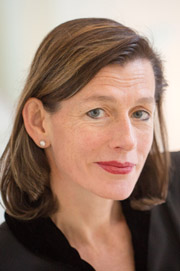 |
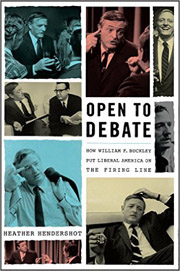 |
Contiguity Theory
by Norvin Richards, MIT Press, 2016
“This impressive study, combining original ideas, theoretical acumen, and rich and often novel empirical data, offers explanations for many open and fundamental problems about the structure of linguistic expressions, at the same time posing a fascinating challenge to some standard assumptions about the general architecture of language. It is a major contribution, sure to be influential.” — Noam Chomsky
Open to Debate: How William F. Buckley Put Liberal America on the Firing Line
by Heather Hendershot, Harper Collins, October 2016
“As strongly as Buckley held to his conservative views, he promoted on 'Firing Line' a very different ethos of public debate than the one we have today. You could come to it as a conservative and become a better, smarter conservative, or come to it as a liberal and become a better, smarter liberal. “That is a kind of model that we can take a lot from.'" — Heather Hendershot
COMMUNITY NEWS
Eight new scholars join the SHASS Faculty, Fall 2016
The School of Humanities, Arts, and Social Sciences is very pleased to present the newest members of the MIT SHASS faculty. They come to us with diverse backgrounds and vast knowledge in their areas of research, which include public policy and labor markets; social inequality and technology; stochastic choice; media; ethical theory; and voting rights.
Meet the new SHASS faculty members
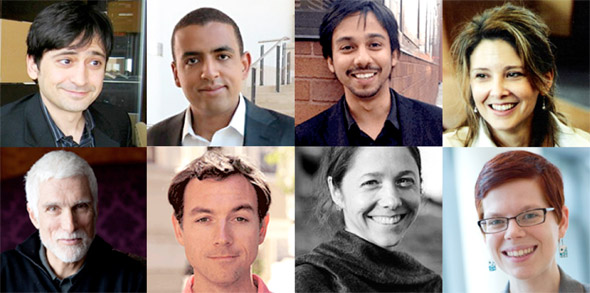
1st row: Alberto Abadie, Professor of Economics; Isaiah Andrews, Assistant Professor of Economics; Dwaipayan Banerjee, Assistant Professor, Program in Science, Technology, and Society; Claire Conceison, Quanta Professor of Chinese Culture and Professor of Theater Arts
2nd row: Drew Fudenberg, Paul A. Samuelson Professor of Economics; Paul Roquet, Assistant Professor of Japanese Studies, Global Studies and Languages; Tamar Schapiro, Associate Professor of Philosophy; Ariel White, Assistant Professor of Political Science
CENTER FOR INTERNATIONAL STUDIES
Lourdes Melgar SM '88, PhD '92 named Wilhelm Fellow
Mexico's former deputy secretary of energy for hydrocarbons will write on Mexican energy reform and research women. Melgar has played a central role in the design and implementation of Mexico’s historic energy reform. Her vision and leadership resulted in the inscription of key elements, including the electricity reform and the social component of the sustainability principle in the new regulatory framework.
Story by Michelle Nhuch
UNDERGRADUATE DISCOVERY
Hundreds of MIT students take the 2016 TOUR de SHASS
At MIT, every undergraduate receives a balanced STEM + SHASS education — with 25% of required classes in the humanities, arts, and social sciences. At the annual TOUR de SHASS academic fair, MIT students meet SHASS faculty, and discover the great diversity of classes in MIT's humanities, arts, and social sciences fields.
Story by SHASS Communications
WOMEN'S AND GENDER STUDIES
My Sister's Keeper program builds community for black women at MIT
More than 70 black women students, staff, and faculty members gathered on September 16 for the first mixer of the year hosted by My Sister's Keeper, a new organization designed to build community and support black women students at MIT with social, professional, and mentoring relationships.
Story by SHASS Communications | My Sister's Keeper website | Women and Gender Studies
“Being a black woman at MIT is a very particular experience. To compare the experience with others going through it is very powerful and uplifting.”
— Itoro Atakpa, Mechanical Engineering '18
LITERATURE
Sandy Alexandre joins East Campus as associate head of house
“A lot of life is lived and a lot of thinking hatches outside the classroom, and I wanted to be a part of cultivating those things,” Alexandre said. “I’m excited to help build community in East Campus, because it’s an important way of ensuring that we have a bright future.”
Story at MIT News
POVERTY ACTION LAB + ECONOMICS
J-PAL and MIT Economics launch D2P2 Lecture Series
With their “D2P2: Data. Decisions. Public Policy” lecture series, J-PAL and MIT Economics aim to share research and ideas with the MIT campus and Greater Boston.
Story by SHASS Communications
KNIGHT SCIENCE JOURNALISM PROGRAM
David Corcoran named associate director of the KSJ Program at MIT
The former science editor at The New York Times joins KSJ. “We are thrilled to have David join the KSJ staff,” said program director Deborah Blum. “He brings an international reputation for excellence, emphasizing our mission of both supporting and illuminating the profession of science journalism.” Corcoran will help manage the KSJ fellowship program and will serve as a senior editor for Undark, KSJ's online science magazine.
Story at MIT News | Undark magazine
IN THE MEDIA
MIT SHASS In the Media
For more of the many recent media stories about SHASS research and faculty, visit:
In the Media Section | November 2016
ECONOMICS
Selected Media Coverage for Bengt Holmström's Nobel Prize in Economics
More
PHILOSOPHY
Challenging harmful ideologies in belief and practice | Sally Haslanger
In this podcast from the UpClose Series, Haslanger discusses what ideologies are, how they work, and how to challenge ideologies like racism or sexism that entrench injustice or privilege.
Listen: Haslanger podcast | UpClose Series
COMPARATIVE MEDIA STUDIES
Meeting ‘the Other’ Face to Face | Fox Harrell
“The Enemy,” underway at M.I.T., is the result of a collaboration between the noted photographer Karim Ben Khelifa and Fox Harrell, an associate professor of digital media. It holds the promise of opening up new frontiers for the integration of journalism and art in a socially oriented 21st-century performance piece poised at technology’s cutting edge.
Story at the New York Times
POLITICAL SCIENCE
Trust in the election process | Charles Stewart III
The Washington Post cites research by political scientist Charles Stewart III into voter confidence and the integrity of the U.S. electoral system.
Story at the Washington Post Wonkblog
STAY IN TOUCH
SHASS stories on MIT News
Bookmark this page
MIT SHASS social media
Facebook | Twitter
MIT-SHASS Publications Directory
Online portal to all MIT-SHASS publications
About the MIT education
The power of STEM + SHASS at MIT
Stories about Making a Better World
Generating solutions for the great challenges of our age
MIT Campaign for a Better World
Story | Join Us
Said and Done is published by the Office of the Dean
MIT School of Humanities, Arts, and Social Sciences
Editor and Designer: Emily Hiestand, Director, SHASS Communications
Publication Associate: Daniel Pritchard, SHASS Communications
Published November 2, 2016

